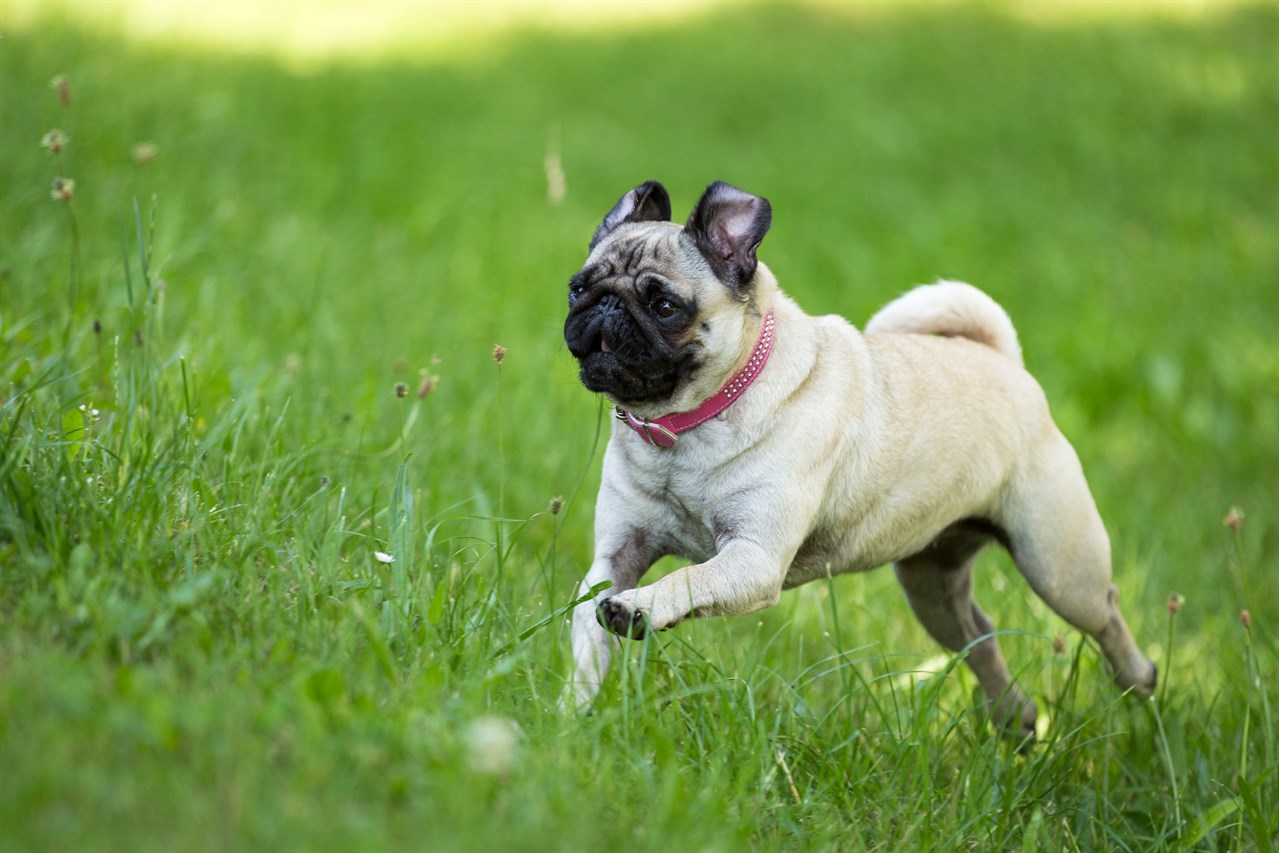Barking Habits of the Pug

Pugs are known for their expressive personalities, and this extends to their vocalisations. While they are not the most vocal of all dog breeds, Pugs do have certain barking habits and tendencies that prospective owners should be aware of.
Alertness
Pugs have a natural instinct to be alert and watchful, which means they may bark when they sense something unusual or when someone approaches your home. This makes them effective watchdogs, as they will often bark to alert you to potential intruders or visitors.
Attention-Seeking
Pugs are social dogs and enjoy being the centre of attention. If they feel neglected or want to engage with their owners, they may bark to get your focus and affection. This is their way of communicating their desire for interaction.
Playfulness
Pugs have a playful disposition, and they may bark during playtime or when they're excited. It's not uncommon for Pugs to bark while chasing a toy, during a game of fetch, or when playing with other dogs.
Loneliness or Separation Anxiety
Pugs are prone to separation anxiety, and when left alone for extended periods, they may bark out of distress or loneliness. This is their way of expressing their unhappiness at being apart from their owners.
Communication
Like all dogs, Pugs use barking as a form of communication. They may bark to express excitement, fear, frustration, or discomfort. Understanding the context and accompanying body language can help decipher their message.
Training and Control
With proper training and socialisation, you can teach your Pug to control their barking habits. Positive reinforcement methods can help you establish boundaries and minimise unnecessary barking.
Are Pugs noisy?
Pugs are not typically considered a noisy breed in the sense of constant, excessive barking. However, they are known to bark when they have something to communicate, such as alerting you to a visitor or seeking attention. While their barking may not be constant, it can be quite enthusiastic and sometimes loud.
It's important to note that excessive barking in any dog can be a sign of underlying issues, such as anxiety or boredom. If your Pug's barking becomes problematic, it's essential to address the root cause and consider seeking guidance from a professional dog trainer or behaviourist. In most cases, with proper training and attention to their needs, you can help manage and minimise excessive barking in your Pug.